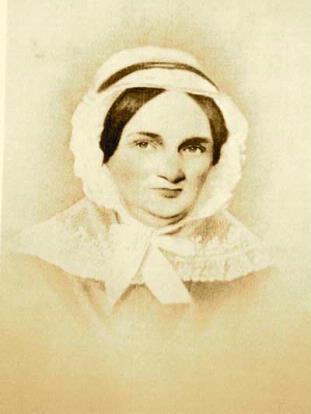 Women’s stories from the past aren’t easy to recover. Women left less evidence, different evidence, evidence that’s harder to find and often more challenging to interpret. And where they have been recovered, women’s stories have often been drowned out by male-focused narratives of national politics, commercial and industrial economies, and power in the public sphere. On June 2, the Massachusetts History Conference will bring together scholars, archivists, local and public historians to explore the ways in which the distinctive stories of women and their work can be woven into local, state and national historical narratives. I plan to be there, because I believe these stories matter; they need to be heard.
Women’s stories from the past aren’t easy to recover. Women left less evidence, different evidence, evidence that’s harder to find and often more challenging to interpret. And where they have been recovered, women’s stories have often been drowned out by male-focused narratives of national politics, commercial and industrial economies, and power in the public sphere. On June 2, the Massachusetts History Conference will bring together scholars, archivists, local and public historians to explore the ways in which the distinctive stories of women and their work can be woven into local, state and national historical narratives. I plan to be there, because I believe these stories matter; they need to be heard.
Twenty years ago I went looking for a woman’s diary. I was seeking some rich source on women’s everyday life in New England’s Early Republic, some record of their quotidian experience of living and loving, producing and nurturing, worshipping, reforming, befriending, birthing, and burying in their rural villages. How did their daily life and work contribute to shaping their world? I went to visit the late Jack Larkin at Old Sturbridge Village. He put in my hands several volumes of the diary of Mary White, a rural Massachusetts farm wife and mother of ten, who kept a journal from the day she married in 1798 until the day she died in 1860.
What a trove; what a challenge! Mary’s jottings of daily chores, household happenings, neighborly visits, and divine Providences filled her leather-bound volumes with closely written scrawl (and barely a mark of punctuation). The cyclical daily-ness of her life formed the stable warp of her diary record. Interwoven with that was an unexpected weft: unending incidents of personal, family, and social strife and contested change. Who would have guessed that one rural farmer’s wife would be so deeply invested in those struggles and strivings that defined this era of nation shaping? Who would have known that through their daily labors Mary and her female neighbors were transforming community? Who knew?!
For one, Laurel Ulrich knew. It was her ground-breaking book, Midwife’s Tale, that inspired me to go looking for such women’s stories. In the past 30 years, work such as Laurel’s has revealed that the dominant discourse on male power in the public sphere, as well as theories on exogenous forces dictating change, were—at best—incomplete. Women’s actions, values, and understandings were also powerful forces shaping experience. Women’s work—in nurturing, producing, reforming, converting, refining, laboring, associating, instituting, and socializing—was essential in creating a new nation and a new social order. If their work was devalued by a society that increasingly measured worth in dollars earned, it was nonetheless essential.
My recent book, Crisis of Community: Trials and Transformation in a New England Village 1815-1848, follows Mary White and her neighbors as they mediate their era’s “revolutions” —market, commercial, industrial, social—through individual choices and actions. These women were driven by powerful internal convictions about improving, perfecting, refining, and many believed passionately in the self-fashioning that was transforming their local community. I could not have recovered their story without recent advances in scholarship about and approaches to women’s work. We’ve come to appreciate woman’s labor within the domestic sphere, her critical role in shaping character, her active evangelizing, reforming, and eventual political pursuit of female interest. We’ve rediscovered forgotten resources in wide-ranging archives, from literary works to account books, church records to female petitions. And we’ve discovered that many of these rich resources lie in local archives, and are only fully understood in light of local community history. In towns across Massachusetts the record of local women’s work lies waiting to be recovered in the saved objects of daily life, in letters and journals, association records, newspapers, images, oral histories and more.
The Massachusetts History Conference at Holy Cross College in Worcester will celebrate the stories of women’s work, highlight the methods used to recover those stories, and suggest creative new sources for exploring women’s working role in Massachusetts history. Appropriately, the Key Note speaker will be Laurel Thatcher Ulrich, who will draw on her long career in recovering women’s stories to discuss Upstairs, Downstairs, and All Around the House: Making Women’s Work Visible. I’m looking forward to the day’s programs with anticipation and with hope that it will spread the word: women’s work matters, and it always has.

